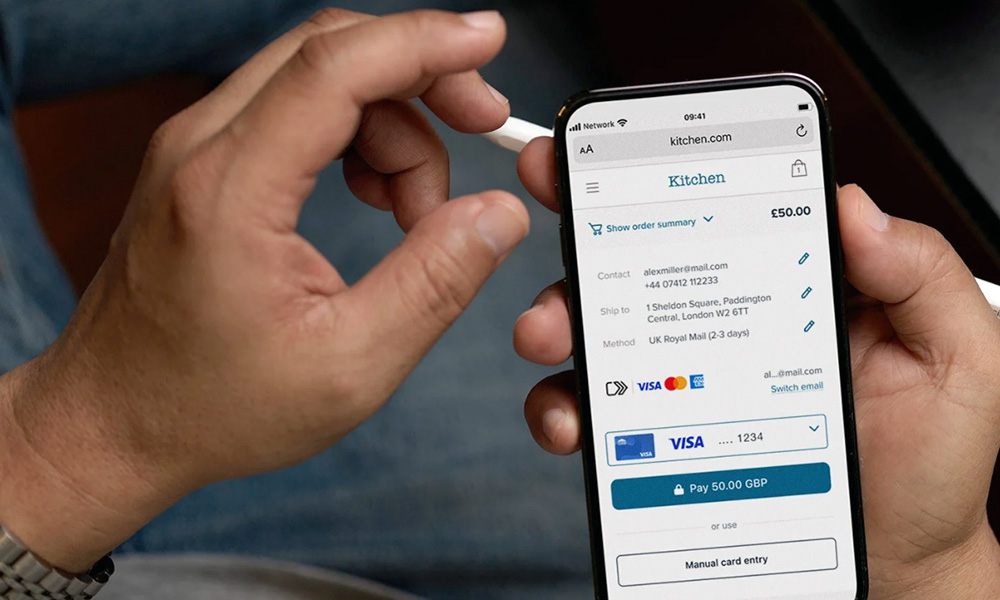“Bitcoin is economic gunpowder that is set to transform the financial system as we know it and change the course of human history.”
That’s the verdict of David Parkinson, CEO of Encoded partner Musqet who in this guest blog shares his plans to accelerate the adoption of this digital currency.
When JD Rockefeller founded his first oil refinery near Cleveland, Ohio in 1863, little did he know he would spark a prolific expansion of new industries that revolutionised the world. In a similar way, Bitcoin is set to have the same transformational impact. It has the potential to change the economic status quo, returning financial sovereignty to the individual whilst unlocking previously unconsidered benefits to industry and society as a whole.
Recent statistics reflect the phenomenal growth of the decentralised currency sector. According to recent data from CoinGlass, the total cryptocurrency market capitalisation has surged back above US$3 trillion with Bitcoin leading the charge by again passing the $100,000 mark. Meanwhile, the Bitcoin dominance metric currently sits at nearly 64% outlining that Bitcoin is the primary driver behind the majority of value in the broad crypto-asset market.
Bitcoin is Digital Gold
Bitcoin stands in a league of its own both as an innovative open-source payment network and a new kind of private commodity money. It is very different from other so called “crypto tokens” that are in the most part little more than gambling chips for speculative investors focused on short-term gains. Bitcoin also differs from programmable digital currencies such as stablecoins whose primary benefit is the ability to instantly send value denominated in USD/EUR/GBP globally – whilst this solves some challenges of the current global payments system, the value is still tied to the nation state or issuer of the currency.
Bitcoin stands out from the crowd in the following ways:
Better than Digital Gold
Some refer to Bitcoin as Digital Gold because it has proved to be an excellent store of value over the long term, out-competing all other assets since its inception in 2009. But it is better than gold because it is scarcer than gold. Every year the new supply of gold increases by c1.5% – 2% whilst the supply rate of Bitcoin reduces every 4 years in a process called “the halving”. At the time of writing there was an estimate of 468 Bitcoin being issued per day via the mining process, a number which will cut in half around May 2028 and again in 2032 until the final Bitcoin is mined around the year 2140. While there is an unknown and vast amount of gold in the universe, there will never be more than 21 million bitcoin and it will take another 120 years for the mining process to release the remaining number of around 1 million.
Tangible business value
Freedom and equality
What’s holding Bitcoin back?
Globally, there are estimated to be 314 million Bitcoin owners. Of that number, only 3.9 million are Brits. Factors contributing to this relatively small – but growing – number are that Bitcoin is currently unregulated in the UK and is deemed an asset making it subject to Capital Gains Tax.
Perhaps the major barrier to Bitcoin adoption is the unsavoury reputation the broader crypto market has gained as the perfect cover for criminal activity such as drug dealing over the internet. The drugs cartels know what they do is illegal but they also know their funds cannot be intercepted by the authorities. However, criminal transactions are actually more prevalent across traditional banking channels than across the Bitcoin network. Chainalysis, whilst not a perfect analytics toolkit, has suggested that less than 1% of all cryptocurrency transactions from 2021 to 2023 were illicit. Within this small fraction, bitcoin’s proportion was even lower. This figure contrasts sharply for example with the 2% to 5% of global GDP estimated by the United Nations Office on Drugs and Crime to be laundered annually through traditional finance channels.
The UK regulators are holding Bitcoin back
In the UK, adoption has also been hampered by a poor regulatory stance, a point raised in Forbes Online recently and by Bitcoin Policy UK which outlines how the FCA has taken an approach that discourages growth and misclassifies fundamentally different assets under the same restrictive policies. Whilst the market and the rest of the world is busy adopting Bitcoin, the UK is falling behind. A Pension Advisory Firm, Cartwright, recently concluded the advice to a corporate pension scheme to allocate £50m into Bitcoin.
Sam Roberts, Director of Investment Consulting at Cartwright, commented: “Trustees are increasingly looking for innovative solutions to future-proof their schemes in the face of economic challenges. This bitcoin allocation is a strategic move that, not only offers diversification, but also taps into an asset class with a unique asymmetric risk-return profile. Our approach ensures that schemes can benefit from the significant potential upside whilst limiting the potential downside. Integrating bitcoin into a pension scheme’s investment strategy is a bold step that reflects the forward-thinking nature of the trustees involved. We are proud to have led this ground-breaking move which we hope will be the start of a trend for institutional investors in the UK to catch up with their increasing number of peers and competitors around the world who are already taking advantage of bitcoin’s unique attributes.”
Bitcoin needs better PR
Here are a few simple steps to improve Bitcoin PR:
1. Dispel myths and fears
Create greater awareness of the positive benefits Bitcoin brings. ‘Money in the pocket’ is a gentle but effective persuader. If someone invested £1 into their bank account five years ago, it would buy around 30% less goods and services today because of inflation whereas Bitcoin has appreciated five or six times its original value over the same period, a trend that will continue because of the capped limit on the currency and increasing demand for usage and adoption.
Commerce
Overcome confusion about the ‘get rich quick’ mentality. The reality is that many serious investors view Bitcoin as an intrinsic part of their long-term financial portfolio such as boosting their retirement savings or kickstarting their pension fund. At Musqet, we aim to pioneer that ability among the business community to accept and normalise building a “Bitcoin Treasury” even in a small business while making it less frightening, safe and easy for the consumer.
Payment Service Providers
Although they might already consider themselves borderless with their ability to process payments in any currency and in any channel, PSPs are often held back by common misconceptions of what the public wants. Rather than merely adopt a broad range of crypto assets, forward-thinking PSPs will truly understand the importance of Bitcoin and find meaningful ways to incorporate it into their value proposition. PSPs are fundamental in helping merchants to accept it, to receive it and to store it securely while being open about the risks.
2. Make business transactions easy
Promote the benefits of instant and final settlement without the usual expensive charge backs associated with debit or credit cards. Then, cut through the noise, helping merchants to facilitate a frictionless Bitcoin payment experience. At Musqet, our technology integrates seamlessly with our customers’ retail and hospitality payment systems. What is more, there are no extra devices or reporting to think about. For all intents and purposes, Bitcoin is treated like any other currency to accept at point of sale – and it’s not just for businesses. Lomond School in Scotland recently announced that they would be partnering with Musqet to accept Bitcoin for school fees and introducing it as part of their curriculum.
3. Turn ideas into action
A future of Hyper-Bitcoinisation
Of course, this is a Bitcoin centric Utopian view and the truth probably lies somewhere in-between but the dream is very appealing because it completely contradicts today’s monetarist and Keynesian model where the creation of money is cheap and effectively devalues our time and productive efforts. Every hour spent working is worth less and less if it is diluted by the currency used to pay for it. The opposite is true of Bitcoin where in the long-term, prices go down but the value of investments or assets goes up. For the first time ever, people will be able to buy more with less rather than the other way round.
If our American cousins succeed in their plans for a fully-fledged Federal Bitcoin reserve then in five years’ time, using Bitcoin to buy every day goods and services is likely to become as common as accepting a gift card or voucher and we will be well on our way to making it mainstream.
Bitcoin is an economic powerhouse with the potential to change the financial status quo and the way society views money. Success depends on overcoming the widespread fear and confusion that are holding Bitcoin back. In this, we all have an important role to play.
About Musqet
UK-based Musqet is a payment provider supporting businesses with card acquiring solutions, ePOS services and Bitcoin payment infrastructure. The Musqet online payment orchestration layer and gateway can deliver lowest cost routing alongside borderless Bitcoin payment and Treasury Management services.
In September 2024, Musqet successfully closed a £750k funding round, led by Axion, to support Musqet’s growth and continue their mission to bring Bitcoin to the mainstream market.
For more information, visit https://musqet.tech or contact:
email: david@musqet.tech
Telegram: Musqet_David






